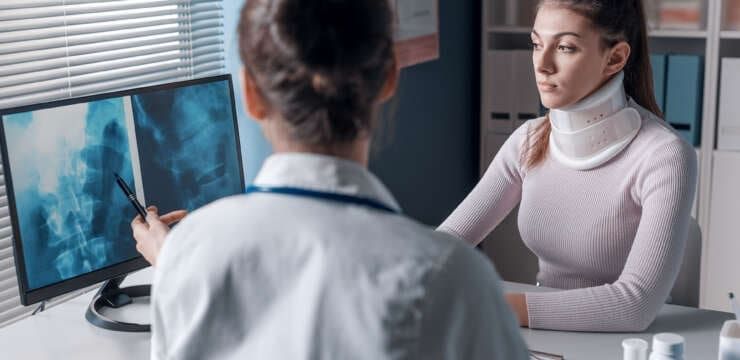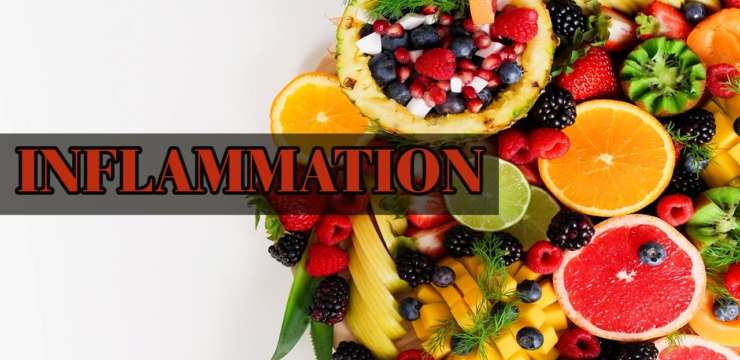
Table of Contents
Gut-Brain Disruptions After Traumatic Brain Injury: How Integrative Chiropractic Care Can Restore Balance

Traumatic brain injury, or TBI, happens when a sudden blow or jolt to the head disrupts normal brain function. This can range from mild concussions to severe cases that change lives forever. While most people associate TBI with headaches, dizziness, or memory issues, it also affects the digestive system significantly. The gut and brain communicate with each other constantly through a network known as the gut-brain axis. When TBI breaks this link, it leads to problems such as leaky gut, imbalanced gut bacteria, and impaired gut motility. These issues can make everyday digestion challenging and even exacerbate the brain injury by spreading inflammation throughout the body (Nicholson et al., 2021). In this article, we’ll break down these effects and explore how simple chiropractic adjustments might help fix them. Drawing on recent studies and expert insights, we’ll explore how gentle spine work can help calm inflammation, boost nerve signals, and restore the gut-brain connection.
Understanding the Gut-Brain Axis Basics
The gut-brain axis is like a two-way street between your stomach and your mind. It uses nerves, hormones, and immune signals to keep everything in sync. The vagus nerve is the primary highway, carrying messages from the brain to regulate digestion and from the gut to influence mood and stress. Approximately 90% of the feel-good chemical serotonin originates in the gut, rather than the brain, highlighting the significant connection between the two (Flint Rehab, 2023). When things go wrong, like after a TBI, this axis becomes jammed. Stress hormones spike, blood flow to the gut decreases, and beneficial gut bacteria are affected. Over time, this can lead to ongoing issues that slow down recovery.
- Key players in the gut-brain axis:
- Vagus nerve: Handles quick signals for digestion and calm.
- Gut microbes: Produce helpful chemicals that affect brain health.
- Immune cells: Fight invaders but can cause trouble if overactive.
Experts like Dr. Alexander Jimenez, a chiropractor and functional medicine specialist in El Paso, Texas, often emphasize in his wellness programs the connection between spine health and this axis. With over 30 years of treating nerve-related pain and gut-linked fatigue, he notes that misaligned spines can add stress to the whole system, making TBI recovery harder (Jimenez, n.d.). His approach combines chiropractic adjustments with nutrition to address root causes, enabling patients to feel more balanced without relying on medication.
How TBI Shakes Up the Gut Right Away
Right after a TBI, the body goes into shock mode. The brain sends out alarm signals that affect the gut quickly—sometimes within just hours. One significant change is heightened intestinal permeability, also known as “leaky gut.” Normally, the gut wall acts like a tight filter, allowing nutrients in but keeping harmful substances out. TBI weakens this barrier, allowing bacteria and toxins to slip into the bloodstream. Studies in mice and humans have shown that tight junction proteins, such as occludin and ZO-1, decrease, creating gaps large enough for germs to escape (Nicholson et al., 2021; Hang et al., 2016). This triggers an inflammatory response that travels back to the brain, exacerbating swelling and hindering healing.
Another quick hit is to address gut motility, or how food moves through the digestive system. The enteric nervous system, the gut’s own nerve network, becomes scrambled. TBI reduces serotonin levels in the colon, slowing peristalsis—the wave-like contractions that propel material through the digestive tract (Nicholson et al., 2021). Without adequate movement, food sits in the digestive system for too long, leading to bloating or constipation. Dr. Jimenez observes this in his clinic: patients post-injury often report feeling “stuck,” not just in their heads but in their stomachs, linking it to nerve signals blocked by spine tension (Jimenez, LinkedIn, n.d.).
- Early gut changes post-TBI:
- Leaky gut syndrome typically begins within 2 hours, increasing the risk of infection.
- Motility drops due to low serotonin and nerve glitches.
- Blood flow shifts away from the gut, starving it of oxygen.
These shifts aren’t just uncomfortable—they feed a cycle. Leaked toxins trigger immune overreactions, releasing cytokines such as TNF-? and IL-6. These chemicals exacerbate brain fog and pain, transforming a one-time hit into long-term trouble (Dietrich et al., 2022).
The Role of Gut Microbiota in TBI Chaos
Gut bacteria, or microbiota, are like a bustling city in your belly, with trillions of tiny residents helping digest food and make brain-boosting compounds. TBI disrupts this city, causing a condition known as dysbiosis. Good bacteria, such as Lactobacillus, decrease, while bad bacteria, like Proteobacteria, increase (Wang et al., 2021). This imbalance reduces the production of short-chain fatty acids (SCFAs), which normally help calm inflammation and support brain repair. Without them, the gut wall weakens more, and harmful signals flood the bloodstream.
Research shows that dysbiosis occurs rapidly—shifts in fecal bacteria appear within 24 hours after injury in animal models (Wang et al., 2021). In people, TBI patients have less diverse microbes than healthy folks, linking to worse thinking skills and mood dips (JCI, 2021). Stress in the brain leads to the death of beneficial bacteria, which in turn causes further stress in the brain. Dr. Jimenez highlights this in his functional medicine talks, where he uses stool tests to spot dysbiosis in injury patients. He says rebuilding with targeted foods and spine adjustments helps restore the “gut team,” easing symptoms like fatigue and irritability (Jimenez, n.d.).
- Dysbiosis effects on the body:
- Fewer SCFAs mean more gut leaks and brain swelling.
- Pathogen overgrowth increases the odds of sepsis by 12 times in severe cases.
- Links to anxiety: Low serotonin from gut bugs worsens post-TBI blues.
One study found that gut dysbiosis serves as a marker for injury severity—sicker patients exhibited more significant shifts in microbe populations, predicting slower recovery (Nicholson et al., 2021). Fixing this could be key to breaking the cycle.
Common Digestive Woes After Brain Injury
Brain Injury (TBI) not only causes subtle changes in the gut but also presents significant daily challenges. Many people notice nausea or vomiting first, similar to motion sickness without the motion. This ties to vagus nerve glitches, which mess with stomach emptying (Cognitive FX, n.d.). Loss of appetite hits hard too—up to half of concussion patients skip meals, leading to weight drops and nutrient gaps that stall healing (Cognitive FX, n.d.).
Constipation and diarrhea flip-flop as motility swings. Slow gut waves cause backups, while inflammation sparks loose stools. Bloating, gas, and acid reflux exacerbate the problem, making eating a laborious task. Flint Rehab reports these hit 30-50% of TBI survivors, often lasting months if untreated (Flint Rehab, 2023). Vertigo sneaks in, too, not just from the head hit, but from gut signals that confuse the balance centers in the brain.
- Top gut symptoms post-TBI:
- Nausea and appetite loss: Affects eating and energy.
- Constipation/diarrhea: From poor motility and stress.
- Bloating/reflux: Inflammation irritates the lining.
Dr. Jimenez sees these in his practice daily. In one case shared on his site, a car accident patient with whiplash and TBI struggled with chronic constipation. Gentle adjustments, combined with gut-friendly foods, turned it around in weeks, boosting overall recovery (Jimenez, LinkedIn, n.d.). These stories demonstrate that gut fixes are essential for feeling whole again.
Inflammation: The Hidden Fire Spreads from Gut to Brain
Inflammation is the body’s repair crew, but after TBI, it turns rogue. Gut leaks allow bacteria fragments, such as LPS, to trigger a storm of cytokines—IL-1?, IL-6, and TNF-?—that rush to the brain (Dietrich et al., 2022). This amplifies microglial cells, the brain’s immune cells, causing more damage than good. It’s like pouring gas on a spark: gut fire feeds brain blaze, leading to edema, neuron death, and foggy thinking.
The enteric nervous system also suffers, with glial cells becoming hyperactive and exacerbating leaks (Nicholson et al., 2021). Systemic spread raises risks for pneumonia or organ failure, with TBI folks 2.5 times more likely to die from gut issues (Nicholson et al., 2021). Probiotics show promise in this regard, as they have been shown to reduce cytokines and enhance healing barriers in trials (Sun et al., 2024). Dr. Jimenez incorporates this into his anti-inflammatory protocols, utilizing chiropractic care to mitigate the storm while supplementing with omega-3s for added calm (Jimenez, n.d.).
- Inflammation’s path post-TBI:
- Gut leaks cytokines into the blood, hitting the brain barrier.
- Microglial overactivation leads to memory and mood disturbances.
- Long-term: Raises odds for epilepsy or depression.
Beta-blockers and vagus stims quiet this fire, hinting at non-drug wins (Dietrich et al., 2022). Catching it early changes everything.
Enteric Nervous System: The Gut’s Overlooked Wiring
The enteric nervous system (ENS) is the gut’s brain, with approximately 500 million neurons that can run digestion solo if needed. TBI disrupts this wiring, downregulating key signals such as nitric oxide and acetylcholine (Nicholson et al., 2021). Serotonin levels dip in the colon, stalling peristalsis and causing a “heavy” feeling. Dysmotility follows, with food pooling and bacteria blooming.
This ENS hit ties to autonomic chaos—sympathetic overdrive squeezes gut blood, starving nerves (Dietrich et al., 2022). Studies in rodents have shown ENS gliosis, similar to scarring that blocks signals (Wang et al., 2021). In humans, it explains why TBI ups IBS-like woes. Dr. Jimenez refers to the ENS as the “forgotten link” in his webinars, noting that spine tweaks can free pinched nerves that feed the gut, thereby restoring flow (Jimenez, LinkedIn, n.d.).
- ENS damage signs:
- Low neurotransmitters slow gut waves.
- Gliosis scars signal paths, worsening leaks.
- Ties to vertigo: Mixed gut-brain cues confuse balance.
Restoring ENS could unlock improved motility and reduced pain, according to emerging research (Sun et al., 2024).
Spotlight on Leaky Gut and Systemic Ripples
Leaky gut isn’t hype—it’s a real barrier breach post-TBI. Tight junctions fray due to stress hormones like cortisol, allowing waste to pass through (Hang et al., 2016). Human urine tests show lactulose/mannitol ratios spike, proving leaks (Hang et al., 2016). This floods the body with endotoxins, sparking sepsis or multi-organ woes.
The Auburn Chiropractors blog links this to brain-gut snaps, where inflammation loops back (Auburn Chiropractors, n.d.). Dr. Jimenez echoes this, using functional tests to track leaks in TBI cases. His patients often experience reduced fatigue once barriers are addressed through diet and adjustments (Jimenez, n.d.).
- Leaky gut fallout:
- Toxins trigger body-wide alerts.
- Nutrient loss starves brain repair.
- Raises chronic disease risks like autoimmunity.
Glutamine or ghrelin supplements seal gaps in labs, offering hope (Hang et al., 2016).
Dysbiosis Deep Dive: Bacteria Gone Wild
Dysbiosis flips the gut from ally to foe. TBI reduces diversity, favoring pathogens that consume mucus and create holes (Wang et al., 2021). Bile acids shift, cutting protective SCFAs (Azad et al., 2025). This starves vagal signals, dimming anti-inflammatory chats.
Veteran studies show lasting shifts, tied to PTSD-like symptoms (JCI, 2021). As a biomarker, dysbiosis gauges the depth of injury—worse bugs mean tougher roads (Diaz et al., 2019). Dr. Jimenez’s podcasts stress rebuilding with prebiotics, paired with spine work for full effect (Jimenez, LinkedIn, n.d.).
- Dysbiosis drivers:
- Stress kills good bugs fast.
- Meds like antibiotics pile on.
- Feedback worsens brain edema.
Fecal transplants reverse it in mice, cutting deficits (Wang et al., 2021).
Inflammation’s Full-Body Tour
From gut to globe, inflammation persists after TBI. Cytokine surges activate NF-?B pathways, triggering further complications (Dietrich et al., 2022). Monocytes rush in, amping gut fire that echoes in lungs and brain. This sympathetic storm diverts blood, breeding hypoxia.
Prolonged flares are linked to epilepsy and depression (Nicholson et al., 2021). Statins have been shown to dampen it in trials, suggesting that everyday aids like turmeric may also be beneficial (Dietrich et al., 2022). Dr. Jimenez integrates this, noting adjustments drop cortisol for calmer systems (Jimenez, n.d.).
- Inflammation hotspots:
- Gut: Barrier breakdown.
- Brain: Neuron threats.
- Body: Organ strain.
Targeting gut cuts the tour short.
Chiropractic’s Gentle Path to Gut-Brain Harmony
Integrative chiropractic excels in this area, utilizing spinal adjustments to optimize the nervous system. Misalignments pinch nerves, jamming gut signals—adjustments free them, boosting vagal tone for better motility (Eugene Chiropractor, n.d.). This calms inflammation, restoring serotonin flow (Psychology Today, 2025a).
For TBI, upper neck adjustments near the brainstem can enhance brain-gut communication, according to Balance Atlanta (n.d.). Studies show that adjustments increase heart rate variability, a marker of vagal health (Psychology Today, 2025b). Dr. Jimenez champions this, blending it with nutrition in his clinic. One veteran patient, as per his LinkedIn profile, regained his appetite and clarity after adjustments (Jimenez, LinkedIn, n.d.).
- Chiro benefits for gut-brain:
- Vagal boost: Eases digestion.
- Inflammation drop: Less cytokine chaos.
- Spine-gut link: Better motility signals.
Non-invasive and drug-free, it’s a smart add-on.
Dr. Jimenez’s Real-World Wins
Dr. Alexander Jimenez isn’t just a theory—he’s treated thousands. As a DC and FNP-BC, he spots gut-brain ties in injury cases. In his El Paso clinic, TBI patients receive custom plans: adjustments for nerve flow, probiotics to combat gut issues, and anti-inflammatory foods. “We repair the spine to heal the whole chain,” he says in podcasts (Jimenez, LinkedIn, n.d.).
One insight: Neuropathy from TBI often masks as gut pain; his “Neuro-Gen” protocol eases both via rehab. His functional assessments identify dysbiosis early, reducing recovery time. Endorsed as top-rated, his work demonstrates that integrative care is effective (Jimenez, n.d.).
- Jimenez’s tips:
- Test stool for imbalances.
- Adjust weekly for nerve reset.
- Add fermented foods daily.
His veteran outreach shows compassion in action.
Everyday Steps to Mend the Gut Post-TBI
Recovery starts small. Hydrate to flush toxins—aim for half your weight in ounces daily. Eat fiber-rich foods, such as oats, berries, and leafy greens, which support beneficial bacteria (Flint Rehab, 2023). Probiotics, such as yogurt, help rebuild diversity; consult your doctor first.
Move gently—walks stimulate motility without strain. Stress busters include techniques such as deep breathing and improving vagal tone. Track symptoms in a journal to spot patterns.
- Quick gut aids:
- Pro/prebiotics: Restore balance.
- Anti-inflammatory diet: Fish, turmeric.
- Hydration/exercise: Boost flow.
Early enteral feeds are beneficial for severe cases, according to reviews (Psychology Today, 2025a).
Promising Therapies on the Horizon
Vagus nerve stimulation reduces permeability in mice, mimicking cholinergic effects (Sun et al., 2024). Probiotics slash infections in ICU trials (Sun et al., 2024). Electroacupuncture quickens motility (Sun et al., 2024).
Fecal transplants rebuild axes in labs (Wang et al., 2021). Nanotherapies target inflammation precisely (Dietrich et al., 2022). Dr. Jimenez eyes these, blending with chiro for full coverage (Jimenez, n.d.).
- Future fixes:
- Stims: Non-invasive nerve boosts.
- Transplants: Microbiome resets.
- Add-ins: Omega-3s for barriers.
Trials will guide safe picks.
Wrapping Up: A United Front for Healing
TBI’s gut punch is real, but knowledge arms us. From leaky barriers to microbe mayhem, disruptions fuel a tough cycle. Yet, integrative chiropractic offers a bridge—simple adjustments restore flow, quell inflammation, and heal tissues. With Dr. Jimenez’s insights lighting the way, blending spine care, nutrition, and patience paints a brighter path. Consult with experts; small steps lead to significant changes. Healing isn’t a linear process, but it’s possible.
References
Auburn Chiropractors. (n.d.). Traumatic brain injury & the leaky gut connection. www.theauburnchiropractors.com/blog/214636-traumatic-brain-injury-amp-the-leaky-gut-connection
Azad, A. K., et al. (2025). The gut-brain axis in traumatic brain injury: Literature review. Journal of Neuroimmunology. www.sciencedirect.com/science/article/abs/pii/S0967586825002309
Balance Atlanta. (n.d.). Brain injury. balanceatlanta.com/chiropractic/other-conditions/brain-injury/
Cognitive FX. (n.d.). Post-concussion stomach problems: Loss of appetite, pain, & more. www.cognitivefxusa.com/blog/concussion-loss-of-appetite-and-other-stomach-problems
Diaz, A. L., et al. (2019). Gut microbiota as a therapeutic target to ameliorate the biochemical, neuroanatomical, and behavioral effects of traumatic brain injuries. Frontiers in Neurology. pubmed.ncbi.nlm.nih.gov/31474930/
Dietrich, W. D., et al. (2022). Diet-microbiome-gut-brain nexus in acute and chronic brain injury. Frontiers in Neurology. pmc.ncbi.nlm.nih.gov/articles/PMC9523267/
Eugene Chiropractor. (n.d.). Can chiropractic care improve your gut health? www.eugenechiropractor.com/blog/posts/can-chiropractic-care-improve-your-gut-health
Flint Rehab. (2023). Brain injury and gut health: Looking at the gut-brain axis and how the connection can impact TBI recovery. www.flintrehab.com/brain-injury-and-gut-health/
Hang, C. H., et al. (2016). The gut reaction to traumatic brain injury. Journal of Neuroscience. pmc.ncbi.nlm.nih.gov/articles/PMC5019014/
JCI. (2021). Brain-gut axis dysfunction in the pathogenesis of traumatic brain injury. Journal of Clinical Investigation. www.jci.org/articles/view/143777
Jimenez, A. (n.d.). Injury specialists. dralexjimenez.com/
Jimenez, A. (n.d.). Dr. Alexander Jimenez DC, APRN, FNP-BC, IFMCP, CFMP, ATN ? – Injury Medical Clinic PA | LinkedIn. www.linkedin.com/in/dralexjimenez/
Nicholson, S. E., et al. (2021). Dysregulated brain-gut axis in the setting of traumatic brain injury: Review of mechanisms and anti-inflammatory pharmacotherapies. Journal of Neuroinflammation. pmc.ncbi.nlm.nih.gov/articles/PMC11083845/
Northwest Florida Physicians Group. (n.d.). Using chiropractic care to treat traumatic brain injuries. northwestfloridaphysiciansgroup.com/using-chiropractic-care-to-treat-traumatic-brain-injuries/
Psychology Today. (2025a). Fixing the gut-brain chaos after head injury. www.psychologytoday.com/us/blog/your-brain-on-food/202501/fixing-the-gut-brain-chaos-after-head-injury
Psychology Today. (2025b). The gut-brain-spine connection. www.psychologytoday.com/us/blog/the-leading-edge/202503/the-gut-brain-spine-connection
Sun, Y., et al. (2024a). Probiotics in traumatic brain injury: New insights into mechanisms and future perspectives. Frontiers in Microbiology. pmc.ncbi.nlm.nih.gov/articles/PMC11313054/
Sun, Y., et al. (2024b). Research progress on digestive disorders following traumatic brain injury. World Journal of Gastroenterology. pmc.ncbi.nlm.nih.gov/articles/PMC11695231/
Wang, Z., et al. (2021a). Brain-gut axis dysfunction in the pathogenesis of traumatic brain injury. Journal of Clinical Investigation Insight. pmc.ncbi.nlm.nih.gov/articles/PMC8203445/
Wang, Z., et al. (2021b). Rebuilding microbiome for mitigating traumatic brain injury: Importance of restructuring the gut-microbiome-brain axis. Journal of Neurotrauma. pmc.ncbi.nlm.nih.gov/articles/PMC8003896/
Disclaimers
Professional Scope of Practice *
The information herein on "Gut-Brain Disruptions After TBI and Their Effects" is not intended to replace a one-on-one relationship with a qualified health care professional or licensed physician and is not medical advice. We encourage you to make healthcare decisions based on your research and partnership with a qualified healthcare professional.
Blog Information & Scope Discussions
Welcome to El Paso's wellness blog, where Dr. Alex Jimenez, DC, FNP-C, a board-certified Family Practice Nurse Practitioner (FNP-C) and Chiropractor (DC), presents insights on how our team is dedicated to holistic healing and personalized care. Our practice aligns with evidence-based treatment protocols inspired by integrative medicine principles, similar to those found on dralexjimenez.com, focusing on restoring health naturally for patients of all ages.
Our areas of chiropractic practice include Wellness & Nutrition, Chronic Pain, Personal Injury, Auto Accident Care, Work Injuries, Back Injury, Low Back Pain, Neck Pain, Migraine Headaches, Sports Injuries, Severe Sciatica, Scoliosis, Complex Herniated Discs, Fibromyalgia, Chronic Pain, Complex Injuries, Stress Management, Functional Medicine Treatments, and in-scope care protocols.
Our information scope is limited to chiropractic, musculoskeletal, physical medicine, wellness, contributing etiological viscerosomatic disturbances within clinical presentations, associated somato-visceral reflex clinical dynamics, subluxation complexes, sensitive health issues, and functional medicine articles, topics, and discussions.
We provide and present clinical collaboration with specialists from various disciplines. Each specialist is governed by their professional scope of practice and their jurisdiction of licensure. We use functional health & wellness protocols to treat and support care for the injuries or disorders of the musculoskeletal system.
Our videos, posts, topics, subjects, and insights cover clinical matters, issues, and topics that relate to and directly or indirectly support our clinical scope of practice.*
Our office has reasonably attempted to provide supportive citations and has identified the relevant research studies or studies supporting our posts. We provide copies of supporting research studies available to regulatory boards and the public upon request.
We understand that we cover matters that require an additional explanation of how they may assist in a particular care plan or treatment protocol; therefore, to discuss the subject matter above further, please feel free to ask Dr. Alex Jimenez, DC, APRN, FNP-BC, or contact us at 915-850-0900.
We are here to help you and your family.
Blessings
Dr. Alex Jimenez DC, MSACP, APRN, FNP-BC*, CCST, IFMCP, CFMP, ATN
email: coach@elpasofunctionalmedicine.com
Licensed as a Doctor of Chiropractic (DC) in Texas & New Mexico*
Texas DC License # TX5807
New Mexico DC License # NM-DC2182
Licensed as a Registered Nurse (RN*) in Texas & Multistate
Texas RN License # 1191402
ANCC FNP-BC: Board Certified Nurse Practitioner*
Compact Status: Multi-State License: Authorized to Practice in 40 States*
Graduate with Honors: ICHS: MSN-FNP (Family Nurse Practitioner Program)
Degree Granted. Master's in Family Practice MSN Diploma (Cum Laude)
Dr. Alex Jimenez, DC, APRN, FNP-BC*, CFMP, IFMCP, ATN, CCST
My Digital Business Card





